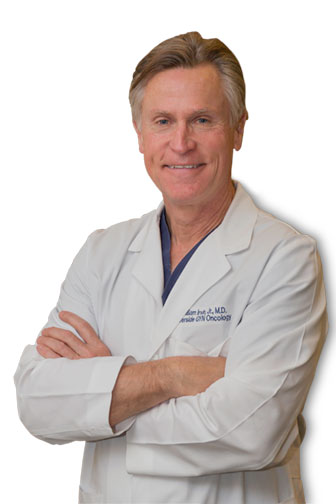 Director, Gynecologic Oncology and Minimally Invasive Surgery
Director, Gynecologic Oncology and Minimally Invasive Surgery
Riverside Regional Medical Center
In 1998, when Dr. William Irvin was a Professor of OB/GYN at the University of Virginia, he got a phone call from a man named Stan Brock. His name wasn’t familiar, but he would soon play a major role in the physician’s life.
Brock introduced himself as the founder of an organization called Remote Area Medical (RAM). He’d gone to Guyana as a youth, ultimately becoming foreman of the largest cattle ranch in that country. He tamed panthers, wrestled anacondas, rode bareback and came to admire the native Guyanans known as Amerindians – and developed an acute awareness of the lack of medical care available to the native community. In his book, When All The Cowboys Were Indians, he swore that if he was ever in a position to help these people, he would.
A Hollywood career (he was one of Marlon Perkins’ sidekicks on Mutual of Omaha’s Wild Kingdom) afforded him sufficient funds to return to Guyana, where he founded RAM – all volunteer doctors, anesthesiologists, nurses and others who would contribute their time to various health care needs across the world. Brock called to ask Dr. Irvin if he would help develop a cervical cancer screening program in Guyana.
Dr. Irvin knew that cervical cancer in developing countries was the leading cause of cancer related death among women of reproductive age, and that in many women, it was the number one cause of death, period. “They couldn’t afford to screen,” he explains. “Too often, they can’t afford to feed their people, let alone screen them for illness.”
Together with Brock, Dr. Irvin put together a program and began going to Guyana to screen Amerindian women in villages throughout the Amazon River basin. “We’d go in and do Pap smears in villages that had never seen white men before,” he remembers. “We’d talk with the medicine men in the villages, who were directing health care for the villagers, and we’d educate them first, and they would in turn educate the women.”
It was a challenge. Dr. Irvin and his colleagues had to devise a way to do Pap smears without women disrobing. “They were uncomfortable taking their underwear off,” he says, “and their men didn’t want them to.” And unfortunately, not everyone in the villages understood it was in their interest to be screened. There were some villages where Dr. Irvin and his team were turned away.
The second part of the program was surgery on the women found to have cancer. Dr. Irvin remembers the primitive conditions in which he’s operated: “One of the operating rooms had open windows, and I looked down to see a scorpion crawling up my leg. Right in the middle of surgery!” There was nothing to do but kill it and continue with the procedure.
Conditions today are somewhat better. Many of the surgeries are performed in Guyana’s capital, Georgetown, where there is a residency program – but he still operates in primary outposts like Lethem, from where he makes day trips to various villages like Monkey Mountain or Anai. “It makes us appreciate what we have here, because down there, we don’t have enough sutures; we’re making do with sutures that aren’t the right size. We don’t have the right equipment or instrumentation.”
Dr. Irvin’s last trip to Guyana was in November of 2014, and he’ll return next September, paying his own airfare, getting malaria shots and gathering the equipment and supplies he hopes will suffice. He does it, he says, because “These are very noble people, and it’s a privilege to help them.”
As for Stan Brock, at 85 he’s still heading RAM, making sure it’s taking care of underserved people around the world.

